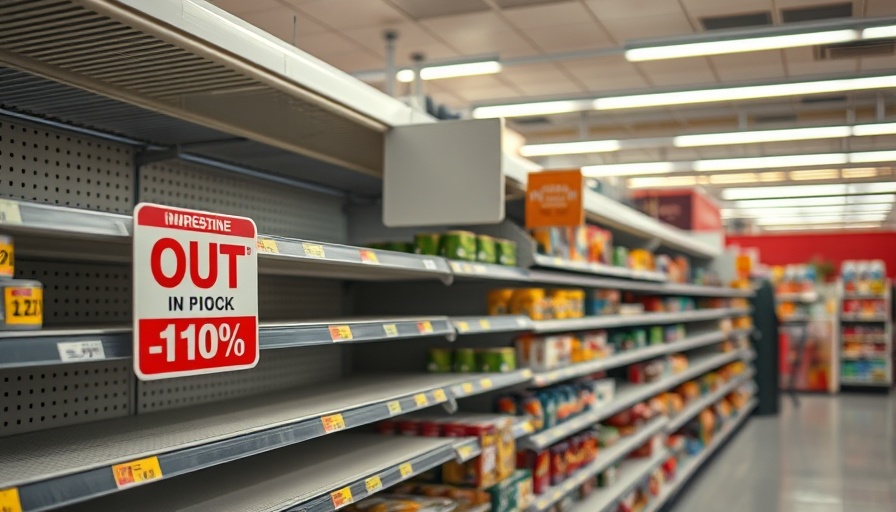
Understanding the Cyberattack Impacting Your Groceries
In a troubling development for grocery shoppers, Whole Foods has alerted its employees that a cyberattack against its primary distributor, United Natural Foods (UNFI), has caused significant disruptions in product availability. As one of the largest food distributors in North America, UNFI plays a crucial role in supplying groceries and fresh produce to thousands of stores across the U.S. and Canada. The cyber incident has been categorized as a "nationwide technology system outage," a situation that has led to chaos in supply chains and a reduced ability to restock shelves.
The Chaos Behind the Shelves
Whole Foods’ internal communication, which was obtained by TechCrunch, revealed that the disruptions could take “several days to resolve,” and employees were advised to limit customer communication regarding the difficulties. The sole approved message for staff emphasizes that the store is experiencing “temporary supply challenges.” This news raises significant concern for consumers who rely on these grocery outlets for everyday essentials.
Rising Concerns: Empty Shelves Expected
Anecdotal reports indicate that some Whole Foods locations already show signs of depleted stock, with notices displayed on shelves that products are temporarily unavailable. The spokesperson for Whole Foods, Nathan Cimbala, pledged prompt efforts to restock. Yet, customers may not see the full impact of this disruption until later in the week, as the trickle-down effects of supply chain issues tend to surface in real-time.
Why Cybersecurity Matters in the Grocery Sector
This incident highlights the vulnerability of grocery supply chains in an increasingly digital world. Cyberattacks can paralyze operations, leading to product shortages and customer dissatisfaction. The UNFI incident serves as a stern reminder that the grocery sector must prioritize cybersecurity just as heavily as it does logistics and inventory management.
Strategic Partnerships and Future Preparations
To mitigate risks from such incidents, grocery retailers like Whole Foods may need to diversify their distribution networks and forge partnerships with multiple suppliers. This strategic approach can help ensure that even in the event of a cyber threat, product availability remains stable. Companies should also invest in stronger cybersecurity measures to protect their operations from similar threats in the future.
The Bigger Picture: Grocery Tech Future Trends
As we look ahead, it is essential for both retailers and consumers to be aware of emerging technologies that can enhance the shopping experience while also safeguarding against potential cyber threats. Innovations such as blockchain technology could play a pivotal role in ensuring transparency and traceability of supply chains, ultimately fostering better trust and reducing the likelihood of disruptions.
Your Role as a Consumer
As a consumer, staying informed about these issues is vital. Consider voice your concerns to retailers and understand how supply disruptions can affect your shopping habits. The upcoming weeks may reveal a changing landscape in grocery shopping as stores adapt to new challenges posed by cybersecurity threats.
The disruptions at Whole Foods underline the increasing need for vigilance in an age where technology directly impacts our daily lives. Stay tuned to our news updates for the latest information on this story and how it affects your local stores.
 Add Row
Add Row  Add
Add 



Write A Comment